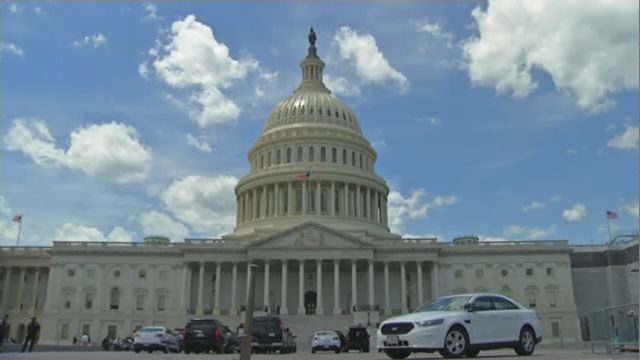PORT ORANGE, Fla. — Funding for the federal government expires at midnight Friday.
- Federal government expires midnight Friday
- Only essential federal employees work during shutdown, says retiree
- Although federal employees won't be paid, they'll be paid retroactively after shutdown
Wednesday congressional leaders from both parties indicated support for a temporary funding bill that would keep the federal government up and running into 2019.
In Central Florida, Gary Campbell has been through a government shutdown as a federal employee too many times.
Campbell, who is retired and now lives in Port Orange, spent his entire 40-year professional career working as a federal employee working for different sectors.
He says when the two dreaded words of “government shutdown” are discussed, people fail to realize many federal employees are still working.
“You’ve got numerous agencies, like air traffic controllers; they are essential, they can’t go home. TSA — they have to continue working,” Campbell said.
Campbell has been a part of seven different government shutdowns over his career and says the reality of a government shutdown may surprise you.
“Trump is going to shut the government down and during the holiday season federal employees will not be paid. Well, during a shutdown they will not be paid, however, after the shutdown they are paid retroactive. So theoretically, you do get paid,” he told Spectrum News.
With a potential shutdown looming, Gary still recalls his first time going through one decades ago.
“I was young, and I (worried), ‘Am I going to get paid or not?’ But then after the resolution comes through, they say everyone is going to be paid,” Gary said.
As the deadline to resolve the budget grows nearer, Gary believes the ones who have the least to worry are the federal employees waiting on standby to go back to work.
Currently there is seven bills that need congressional action. Those bills that still need approval would fund the Departments of Agriculture, Commerce, Justice, Homeland Security, Interior, State, Transportation and Housing and Urban Development, as well as other smaller agencies.




